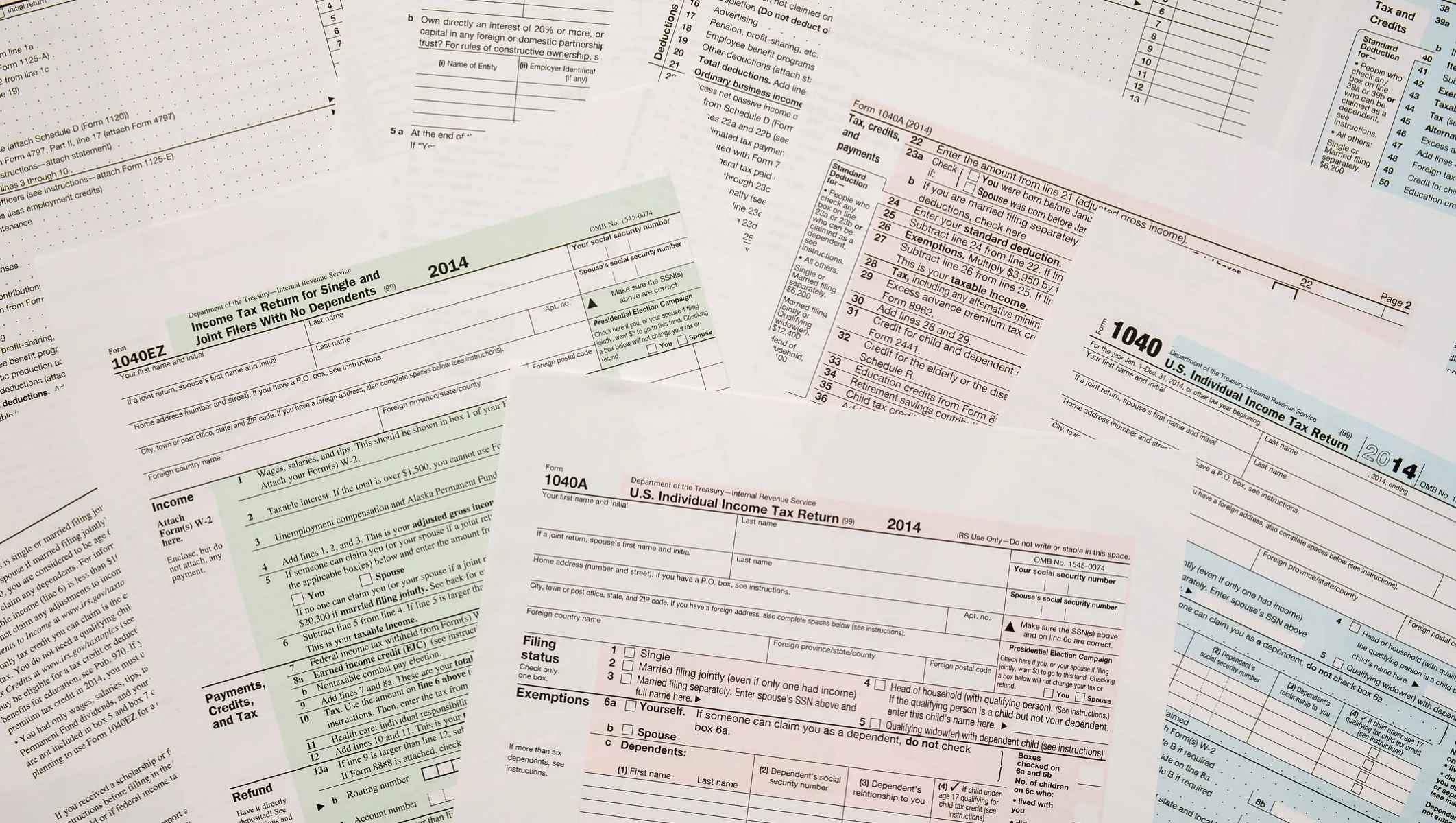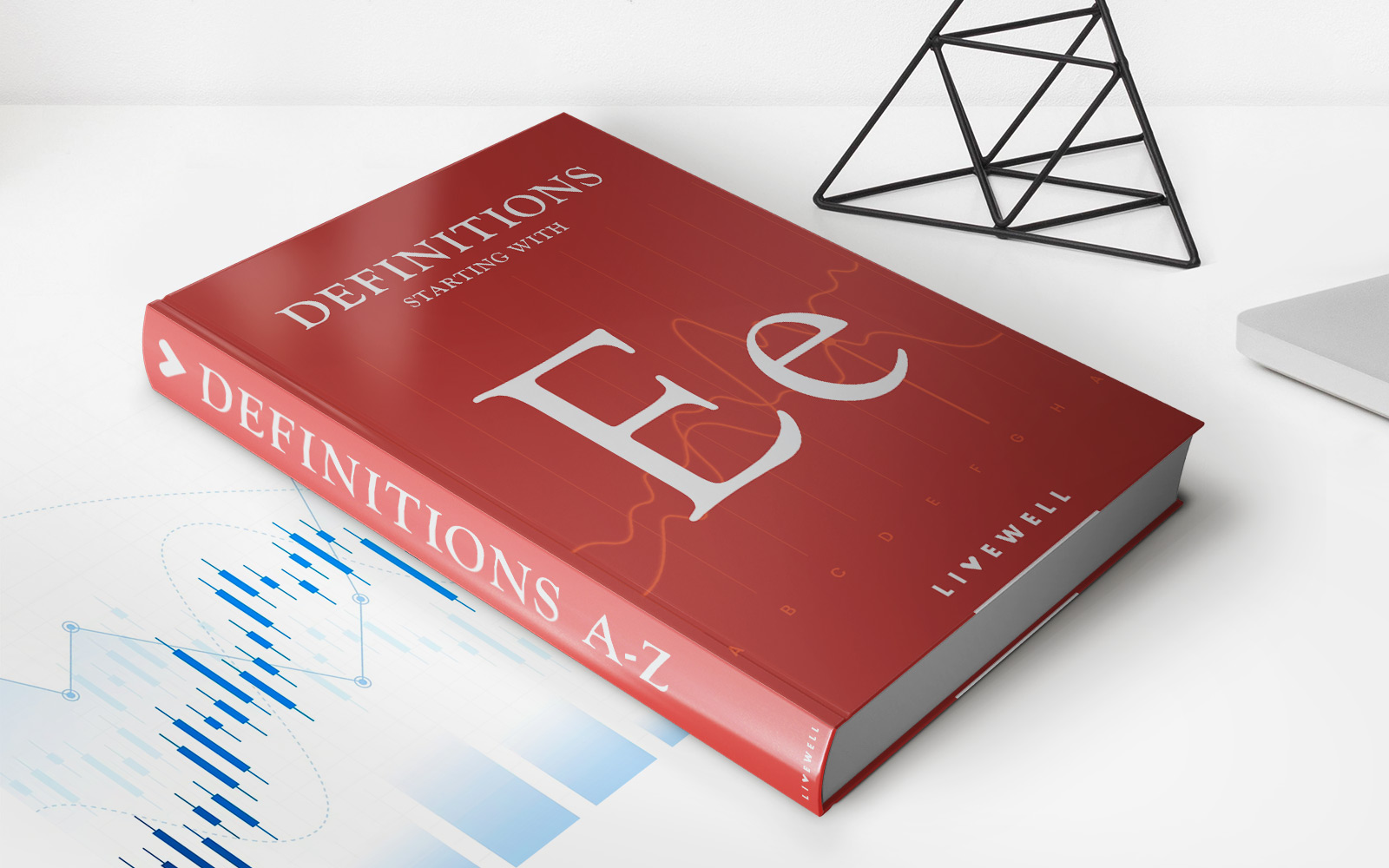Home>Finance>What Documents Do I Need For A Home Equity Loan


Finance
What Documents Do I Need For A Home Equity Loan
Published: January 15, 2024
Get all the information you need about the documents required for a home equity loan. Finance your dream home with the right paperwork.
(Many of the links in this article redirect to a specific reviewed product. Your purchase of these products through affiliate links helps to generate commission for LiveWell, at no extra cost. Learn more)
Table of Contents
Introduction
Are you considering taking out a home equity loan? If so, it’s important to understand the process and requirements involved. Home equity loans can be an excellent financial tool for homeowners who need access to cash for various purposes, such as home improvements, debt consolidation, or tuition fees.
A home equity loan allows you to borrow against the equity you’ve built in your home. Equity is the difference between the current market value of your home and the outstanding balance on your mortgage. By utilizing this equity, you can tap into a source of funds that can be more affordable and flexible than other types of loans.
However, to obtain a home equity loan, there are certain documents you will need to provide to the lender. These documents help the lender assess your financial situation and determine if you meet their criteria for approval.
In this article, we will discuss the documents typically required for a home equity loan, highlighting their importance and providing insights into why they are requested. By understanding these requirements upfront, you can better prepare your application and increase your chances of successfully securing a home equity loan.
Understanding Home Equity Loans
Before diving into the specific documents needed for a home equity loan, it’s essential to have a clear understanding of what a home equity loan actually is. As mentioned earlier, a home equity loan allows homeowners to borrow against the equity they have built up in their homes, using their property as collateral.
Home equity loans are typically offered with fixed interest rates and fixed monthly payments. The loan amount is determined based on the equity in your home, which is calculated by subtracting the outstanding mortgage balance from the current market value of the property.
One of the key advantages of a home equity loan is that the interest you pay on the loan is often tax-deductible, making it an attractive option for many homeowners. However, it’s important to consult with a tax advisor or accountant to determine your specific eligibility for these deductions.
Another benefit of a home equity loan is its flexibility in terms of usage. Unlike some other types of loans, such as auto loans or student loans, a home equity loan can be used for various purposes. Whether you plan to renovate your home, pay for a child’s education, or consolidate high-interest debts, a home equity loan can provide the funds you need.
It’s important to note that when you take out a home equity loan, you are essentially taking on additional debt secured by your property. Failure to make the monthly payments on time may result in foreclosure, so it’s crucial to carefully consider your financial situation and ensure that you can comfortably afford the loan repayments.
Now that you have a basic understanding of home equity loans, let’s explore the specific documents you will need to submit when applying for a home equity loan.
Benefits of a Home Equity Loan
A home equity loan offers several advantages over other types of loans, making it an appealing option for many homeowners. Here are some of the key benefits of obtaining a home equity loan:
- Lower Interest Rates: Home equity loans generally have lower interest rates compared to other types of loans, such as personal loans or credit cards. This is because the loan is secured by your property, which reduces the risk for the lender.
- Tax Deductibility: In many cases, the interest you pay on a home equity loan is tax-deductible. This can save you money in taxes and further reduce the overall cost of the loan. However, it’s important to consult with a tax professional to understand your specific eligibility for tax deductions.
- Flexibility in Usage: Unlike some other loans, a home equity loan allows you to use the funds for any purpose. Whether you want to make home improvements, pay for education expenses, or consolidate high-interest debt, a home equity loan provides the flexibility to meet your financial goals.
- Potential for Higher Loan Amounts: The amount you can borrow with a home equity loan is typically higher compared to other types of loans. This is because the loan is based on the equity you have built in your home, which can be a substantial asset.
- Fixed Interest Rates and Payments: Home equity loans often come with fixed interest rates and fixed monthly payments. This provides stability and predictability in your budget, as you know exactly how much you need to pay each month for the duration of the loan term.
- Improving Credit Score: Successfully managing a home equity loan and making timely payments can have a positive impact on your credit score. This can open up opportunities for future loan applications and potentially lower interest rates.
These benefits make a home equity loan an attractive option for homeowners looking to access funds for various purposes. However, it’s important to carefully consider your financial situation and ensure that you can comfortably afford the loan payments before proceeding with a home equity loan application.
Documents Required for a Home Equity Loan
When applying for a home equity loan, you will need to provide several documents to the lender. These documents are used to verify your identity, income, property ownership, creditworthiness, and other crucial factors. While the specific requirements may vary between lenders, the following are commonly requested documents for a home equity loan:
- Proof of Identity: You will need to provide a valid government-issued identification document, such as a driver’s license or passport. This helps the lender verify your identity and ensures that you are legally eligible to enter into a loan agreement.
- Proof of Income: Lenders typically require documentation to verify your income, such as recent pay stubs, W-2 forms, or tax returns. This helps assess your ability to repay the loan and ensures you have a stable source of income.
- Property Documents: As a home equity loan is secured by your property, you will need to provide documents proving ownership. This includes a copy of your property deed, mortgage statement, and any other relevant documents provided by the local land registry.
- Credit Score and History: Lenders will review your credit score and credit history to assess your creditworthiness. You may be required to provide authorization for the lender to obtain your credit report or to provide copies of your credit reports from major credit bureaus.
- Debt Information: It is important to provide details of your existing debts, such as credit card balances, student loans, and other outstanding loans. This helps the lender assess your overall debt-to-income ratio and determine your ability to manage additional debt.
- Insurance Documents: Homeowners are typically required to have insurance coverage for their property. You may need to provide proof of insurance, including the policy details and coverage amount.
- Loan Application Form: Finally, you will need to complete a loan application form provided by the lender. This form captures essential information about your personal, financial, and property details.
It’s essential to gather all the necessary documents before applying for a home equity loan. This ensures a smoother application process and speeds up the loan approval timeline. It’s also advisable to contact your lender or loan officer to confirm the specific documents required, as they may have additional requirements or variations in their documentation process.
By providing these documents, you demonstrate your eligibility and financial readiness to obtain a home equity loan, increasing your chances of a successful loan application.
Proof of Identity
When applying for a home equity loan, one of the essential documents you need to provide is proof of identity. This document is required by lenders to verify your identity and ensure that you are legally eligible to enter into a loan agreement.
The most common form of proof of identity is a valid government-issued identification document, such as a driver’s license or passport. These identification documents contain personal information, including your full name, date of birth, and a photograph, enabling the lender to verify your identity accurately.
It is important to ensure that the identification document you provide is current and not expired. Lenders typically require valid identification documents to comply with anti-money laundering regulations and prevent fraudulent activities.
If you do not have a driver’s license or passport, there may be alternative forms of identification that the lender may accept. These could include national identity cards or other government-issued identification documents. It’s important to check with your lender to determine which alternative identification documents are acceptable.
When submitting proof of identity, it is crucial to ensure that the document is clear and legible. Any blurred or incomplete information on the identification document may cause delays in the loan application process. If necessary, you may need to provide additional supporting documents to validate your identity, especially if your identification documents have different names due to marriage or other legal changes.
Remember to keep copies of your identification documents before submitting them to the lender. This will serve as a personal record and provide a reference in case any issues or concerns arise during the loan application process.
By providing a valid proof of identity, you demonstrate your legal eligibility to enter into a home equity loan agreement. This helps establish trust and credibility with the lender, increasing the likelihood of a successful loan approval process.
Proof of Income
When applying for a home equity loan, one of the critical documents you need to provide is proof of income. Lenders require this documentation to assess your financial stability, evaluate your ability to repay the loan, and determine your eligibility for the loan amount requested.
There are several types of income documentation that lenders may accept as proof of income:
- Pay Stubs: Recent pay stubs provide a snapshot of your current income. They typically include information on your gross income, deductions, and net income. Lenders may request several months’ worth of pay stubs to get a clear understanding of your income stability.
- W-2 Forms: W-2 forms are typically provided by your employer and summarize your annual income and tax withholdings. Lenders may require your most recent W-2 forms to verify your income.
- Tax Returns: If you are self-employed or receive income from sources other than traditional employment, lenders may request one or more years of filed tax returns. This allows them to assess your income over a longer period and verify its consistency.
- Bank Statements: Bank statements provide a comprehensive view of your income and expenses over a specific period. Lenders may request statements from your personal and business accounts to verify your income and cash flow.
- Proof of Other Income Sources: If you have additional sources of income, such as rental income, investments, or alimony, you may need to provide documentation to support these income streams. This can include rental agreements, dividend statements, or divorce decrees.
Ensure the income documentation you provide is clear, complete, and accurately reflects your current financial situation. If any income documents are in a language other than English, you may need to provide certified translations for the lender’s review.
It’s important to note that the specific income requirements may vary between lenders. Some lenders may have minimum income thresholds or debt-to-income ratio requirements. By providing thorough proof of income documentation, you can demonstrate your ability to repay the loan and strengthen your loan application.
Remember to keep copies of all income documents for your records. These documents can be valuable for future reference, tax purposes, or if any concerns arise during the loan application process.
By providing accurate and verifiable proof of income, you increase your chances of securing a home equity loan and ensure that the lender has a clear understanding of your financial situation.
Property Documents
When applying for a home equity loan, you will need to provide various property documents to the lender. These documents serve to verify your ownership of the property and provide the necessary information for the loan process.
The specific property documents required may vary depending on the lender and the jurisdiction in which your property is located. However, here are some common property documents that lenders typically request:
- Property Deed: The property deed is a legal document that proves your ownership of the property. It contains important information, such as the property’s legal description and the names of the property owners. The lender will need a copy of the property deed to verify your ownership and determine the available equity in the property.
- Mortgage Statement: If your property is currently mortgaged, you will need to provide a copy of the mortgage statement. The mortgage statement shows the outstanding balance on your mortgage, the interest rate, and the terms of the loan. This information is essential for the lender to calculate the equity available for the home equity loan.
- Survey or Plat Map: A survey or plat map provides a detailed diagram of the property, including its boundaries, dimensions, and any structures or improvements. This document helps the lender assess the value of the property and ensure it meets their lending criteria.
- Homeowners Insurance: Proof of homeowners insurance is typically required by the lender to protect their interest in the property. You will need to provide a copy of your homeowners insurance policy, including the policy details and coverage amount.
- Title Insurance: In some cases, the lender may request evidence of title insurance. Title insurance protects against any legal claims or disputes that may arise with the property’s ownership. This document provides additional assurance to the lender that their collateral is secure.
It is important to gather these property documents in advance and ensure that they are up-to-date. Contact your local land registry office or a qualified title company to obtain copies of these documents if you do not have them readily available.
By providing the necessary property documents, you demonstrate your ownership of the property and enable the lender to evaluate the equity available for the home equity loan. These documents also help protect both your interests and the lender’s interests in the property.
Credit Score and History
When applying for a home equity loan, one crucial aspect that lenders consider is your creditworthiness, which is determined by your credit score and credit history. Your credit score and history provide insight into your past financial behavior, indicating the level of risk you pose as a borrower. Therefore, providing information about your credit score and history is an important part of the loan application process.
Your credit score, typically ranging from 300 to 850, is a numerical representation of your creditworthiness. It is calculated based on various factors, including your payment history, credit utilization ratio, length of credit history, types of credit accounts, and new credit applications.
Most lenders prefer borrowers with a higher credit score, as it suggests a lower risk of defaulting on loan payments. However, each lender may have its own credit score requirements, so it’s important to check with the specific lender you are applying with.
Alongside your credit score, lenders also review your credit history, which is a detailed record of your borrowing and repayment activities. This includes information about your credit accounts, such as credit cards, loans, mortgages, and any late or missed payments. Lenders assess your credit history to determine your overall financial responsibility and whether you have a history of managing credit obligations effectively.
When applying for a home equity loan, lenders typically request authorization to obtain your credit report from one or more credit bureaus. This report provides detailed information about your credit score, credit history, outstanding debts, and any derogatory marks, such as bankruptcies or foreclosures.
It’s essential to review your credit report before applying for a home equity loan to ensure its accuracy. If you notice any errors or discrepancies, you should dispute them with the credit bureau to have them corrected.
While a low credit score or negative credit history does not necessarily disqualify you from obtaining a home equity loan, it may affect the terms and interest rates offered. Lenders may still consider other factors, such as your income and the equity in your home, when making their lending decision.
Improving your credit score and maintaining a positive credit history over time can open up more favorable loan options and terms in the future. By consistently making on-time payments, keeping your credit utilization low, and managing your credit responsibly, you can enhance your creditworthiness and increase your chances of securing a home equity loan.
Understanding your credit score and history allows you to present a complete picture of your financial health to the lender, demonstrating your ability to responsibly manage borrowed funds and repay the home equity loan.
Debt Information
When applying for a home equity loan, lenders will request information about your existing debts as part of the loan application process. This is done to assess your overall debt load and determine your ability to take on additional debt.
Providing accurate and up-to-date information about your debts helps lenders gain a complete understanding of your financial obligations and allows them to make an informed decision regarding your eligibility for a home equity loan.
The debt information you may be required to provide includes:
- Credit Card Balances: You will need to disclose the balances on your credit cards. This includes both revolving credit card balances and any outstanding balances on retail store credit cards or other types of credit cards.
- Student Loans: If you have outstanding student loans, you will need to provide details about the loan balances and any monthly payments you are making.
- Auto Loans: If you have an auto loan, you will need to disclose the remaining balance and monthly payment amount.
- Other Loans: If you have any other outstanding loans, such as personal loans or lines of credit, you will need to provide information about the loan balances and repayment terms.
Additionally, you will need to provide information about any monthly obligations, such as child support or alimony payments.
Lenders will use this information to calculate your debt-to-income (DTI) ratio, which measures your monthly debt payments as a percentage of your monthly income. A lower DTI ratio indicates a more favorable financial position and increases your chances of loan approval.
It’s important to ensure that the debt information you provide is accurate and up to date. Lenders may verify the information through credit reports, bank statements, or other means.
For borrowers with high levels of debt, lenders may be more cautious and may offer a lower loan amount or higher interest rate to mitigate the perceived risk. However, having debt does not automatically disqualify you from obtaining a home equity loan. Factors such as your income, credit score, and the equity in your home will also be considered.
Debt management is an essential aspect of responsible financial planning. If you have excessive debt, it may be beneficial to consider strategies to reduce your debt before applying for a home equity loan. Paying down high-interest debt or consolidating multiple debts into a single loan may improve your financial situation and make you a more attractive borrower.
By providing accurate debt information, you demonstrate transparency and enable the lender to evaluate your financial capacity to take on additional debt through a home equity loan.
Insurance Documents
Insurance documents are an important part of the home equity loan application process. Lenders require proof of insurance coverage to protect their interest in the property and ensure that it is adequately insured.
When applying for a home equity loan, you will need to provide the following insurance documents:
- Homeowners Insurance: Homeowners insurance is a crucial requirement for obtaining a home equity loan. It protects your property and the lender’s investment in case of damage or loss due to events like fire, vandalism, or natural disasters. You will need to provide a copy of your homeowners insurance policy, including policy details, coverage amounts, and contact information for your insurance provider.
- Hazard Insurance: Hazard insurance provides coverage specifically for hazards, such as fire or damage caused by weather-related events. It is typically included as part of your homeowners insurance policy. Lenders may request proof of hazard insurance coverage to ensure there is adequate protection against potential risks to the property.
- Flood Insurance: If your property is located in a flood-prone area, you may be required to obtain flood insurance. This type of insurance is separate from homeowners insurance and provides coverage for damages caused by flooding. Lenders may ask for verification of flood insurance if your property is at risk of flooding.
- Other Required Insurance: Depending on the location and specific requirements, lenders may request additional insurance coverage, such as windstorm insurance, in areas prone to high winds or hurricanes. It’s important to check with your lender to determine if there are any specific insurance requirements for your home equity loan.
Providing the necessary insurance documents assures the lender that the property is adequately protected, reducing their risk in case of unforeseen events. It is important to maintain insurance coverage throughout the term of the loan.
If you already have insurance coverage, ensure that your policy is up to date and provides sufficient coverage based on the lender’s requirements. If necessary, contact your insurance provider to make any adjustments or purchase additional coverage that aligns with the lender’s specifications.
By providing the required insurance documents, you demonstrate your commitment to protecting the property and the lender’s investment. This helps facilitate the loan approval process and provides peace of mind to the lender.
Loan Application Form
The loan application form is a crucial document that you will need to complete when applying for a home equity loan. This form provides the lender with essential information about you, your financial situation, and the property for which you are seeking the loan.
The loan application form typically includes the following sections:
- Personal Information: This section requires you to provide your personal details, including your full name, contact information, date of birth, and social security number. It also collects information on your marital status and any dependents.
- Financial Information: Here, you will need to supply information about your employment history, current occupation, and employer details. You may also be asked to provide information on other sources of income, such as rental properties or investments. The form will likely include a section to disclose your monthly income and any existing monthly expenses.
- Property Information: This section collects details about the property for which you are applying for the home equity loan. You will need to provide the property’s address, current market value, and the outstanding mortgage balance, if applicable.
- Loan Details: In this section, you will specify the loan amount you are seeking and the purpose of the loan. You may also have the option to choose the loan term and whether you prefer a fixed or adjustable interest rate.
- Declaration and Agreement: The final section of the application form includes declarations and agreements that confirm the accuracy of the information provided and your understanding of the loan terms and conditions. You will need to read and sign this section to authorize the lender to evaluate your application.
Completing the loan application form accurately and thoroughly is crucial. Any missing or incorrect information could delay the loan approval process or even result in loan rejection. It’s important to take the time to carefully review the form before submission.
Ensure that you sign and date the form as required, and retain a copy for your records. The loan application form serves as a critical record of the terms and conditions agreed upon between you and the lender.
If you have any questions or concerns while completing the form, it’s advisable to reach out to the lender or loan officer for clarification. They can provide guidance and ensure that you have a clear understanding of the information being requested.
By providing accurate and complete information on the loan application form, you demonstrate your readiness and commitment to obtain a home equity loan. This helps streamline the loan approval process and ensures that the lender has all the necessary information to evaluate your application.
Conclusion
Obtaining a home equity loan can be a valuable financial tool for homeowners in need of funds for various purposes. However, in order to successfully secure a home equity loan, it is vital to understand and fulfill the document requirements set by lenders.
In this article, we discussed the key documents typically required for a home equity loan application. These documents include proof of identity, proof of income, property documents, credit score and history, debt information, insurance documents, and the loan application form.
By providing accurate and complete documentation, you can demonstrate your eligibility, financial stability, and commitment to responsibly managing the loan. It is important to gather the necessary documents in advance and review them for accuracy before submitting your loan application.
Remember, each lender may have specific requirements, so it’s essential to communicate with your lender or loan officer to understand their document preferences and any additional information they may need.
Furthermore, it is crucial to consider your financial situation and evaluate the potential benefits and risks associated with a home equity loan. While the loan provides access to funds, it is important to assess your ability to comfortably repay the loan amount and fulfill other financial commitments.
In conclusion, understanding the documents required for a home equity loan and providing them in a timely and accurate manner can increase your chances of securing the loan. By doing so, you can harness the benefits of a home equity loan and achieve your financial goals.














